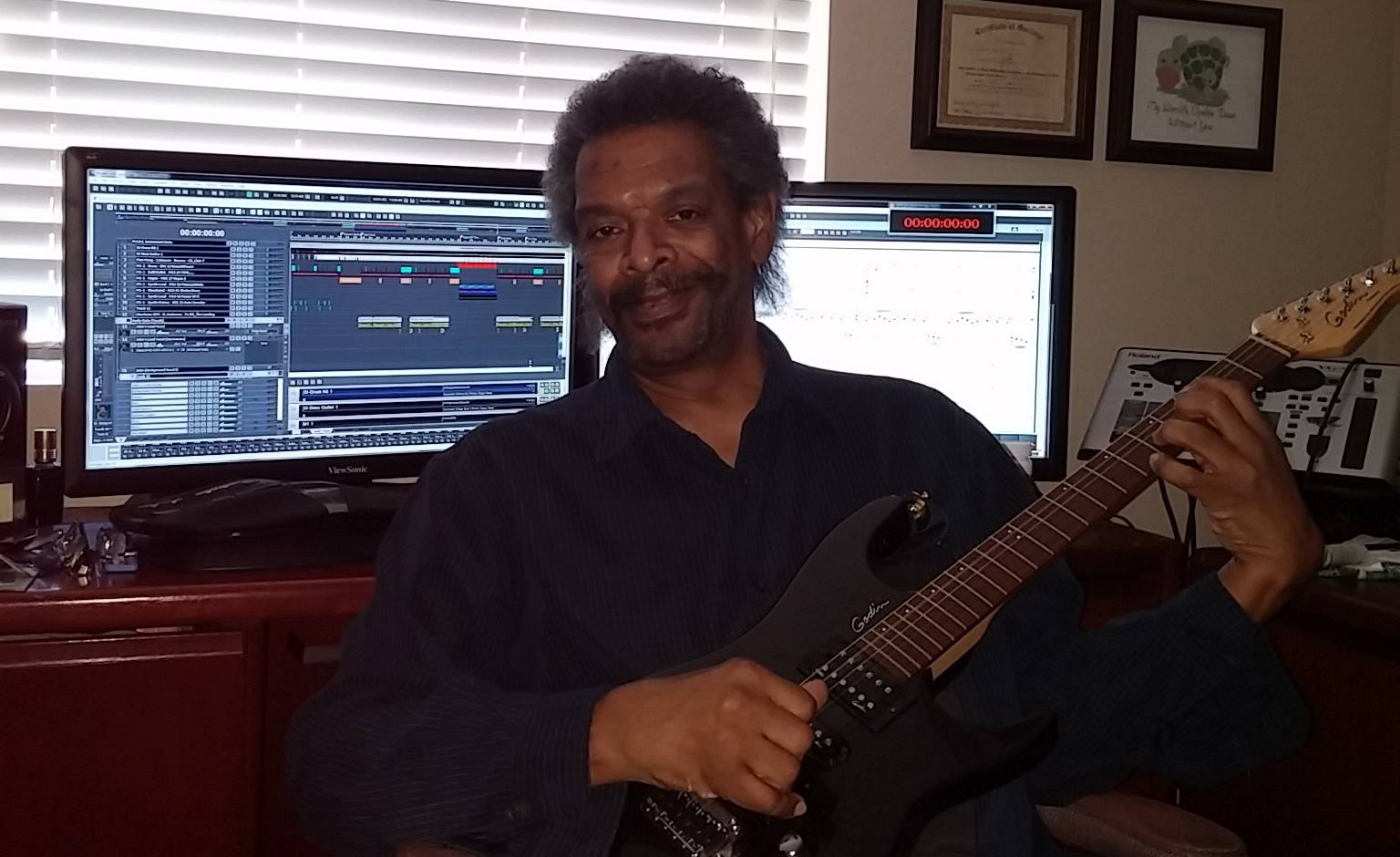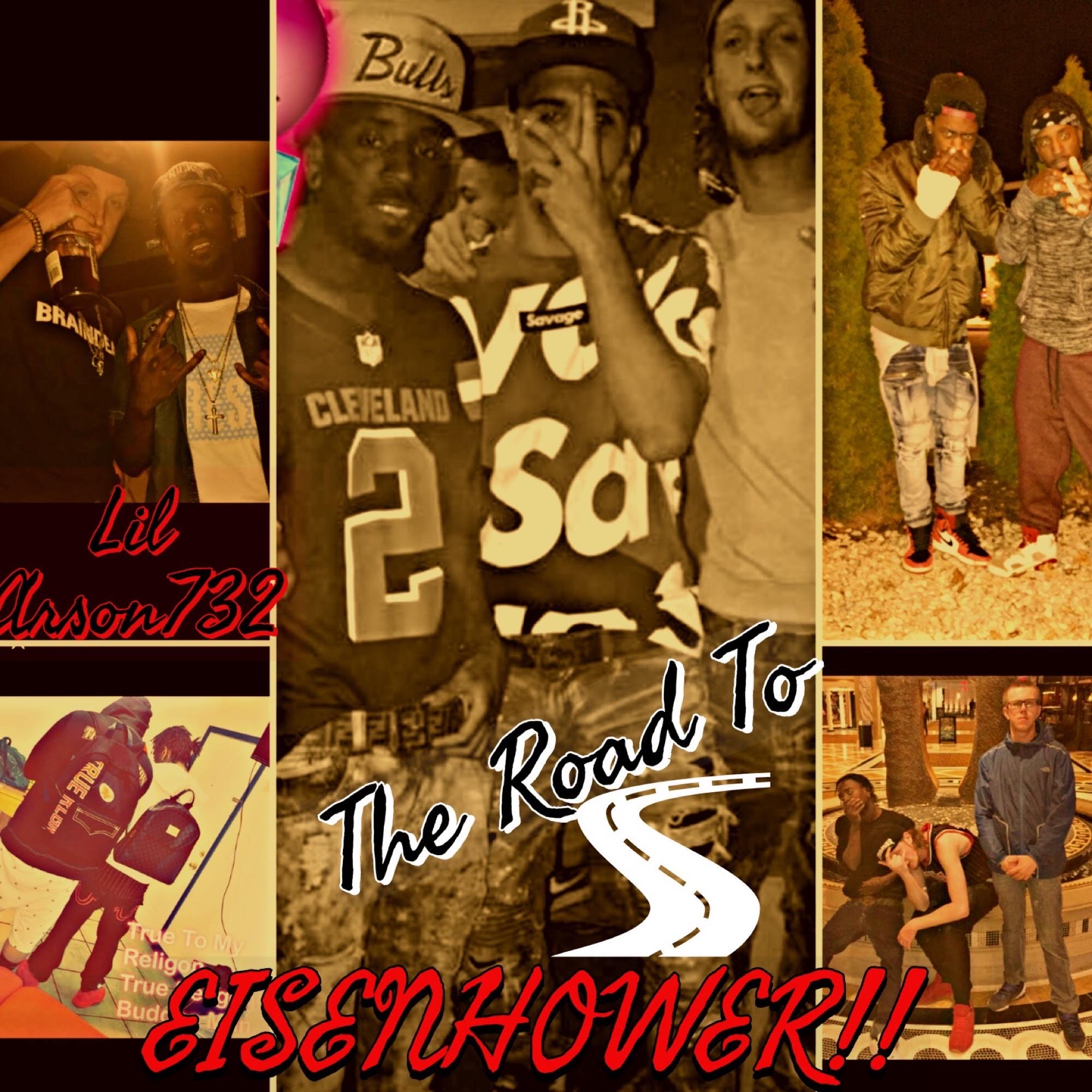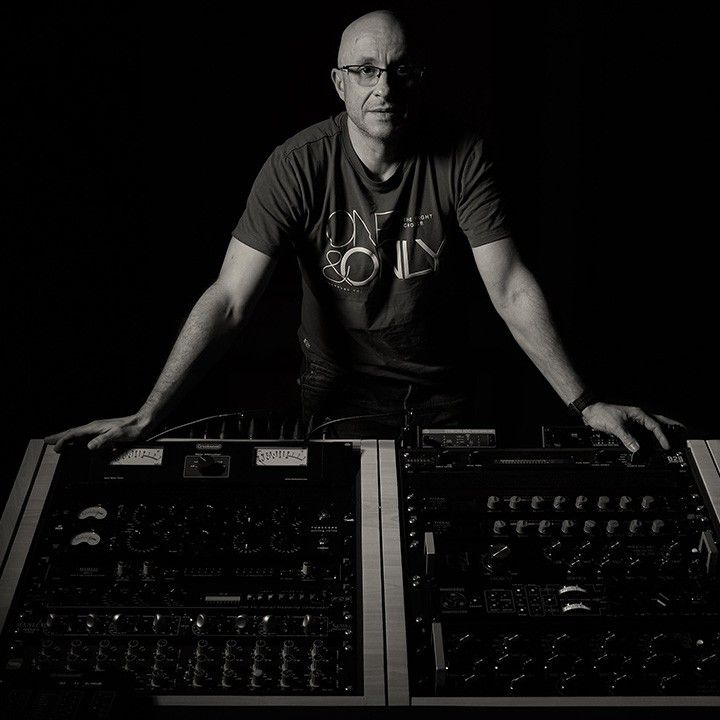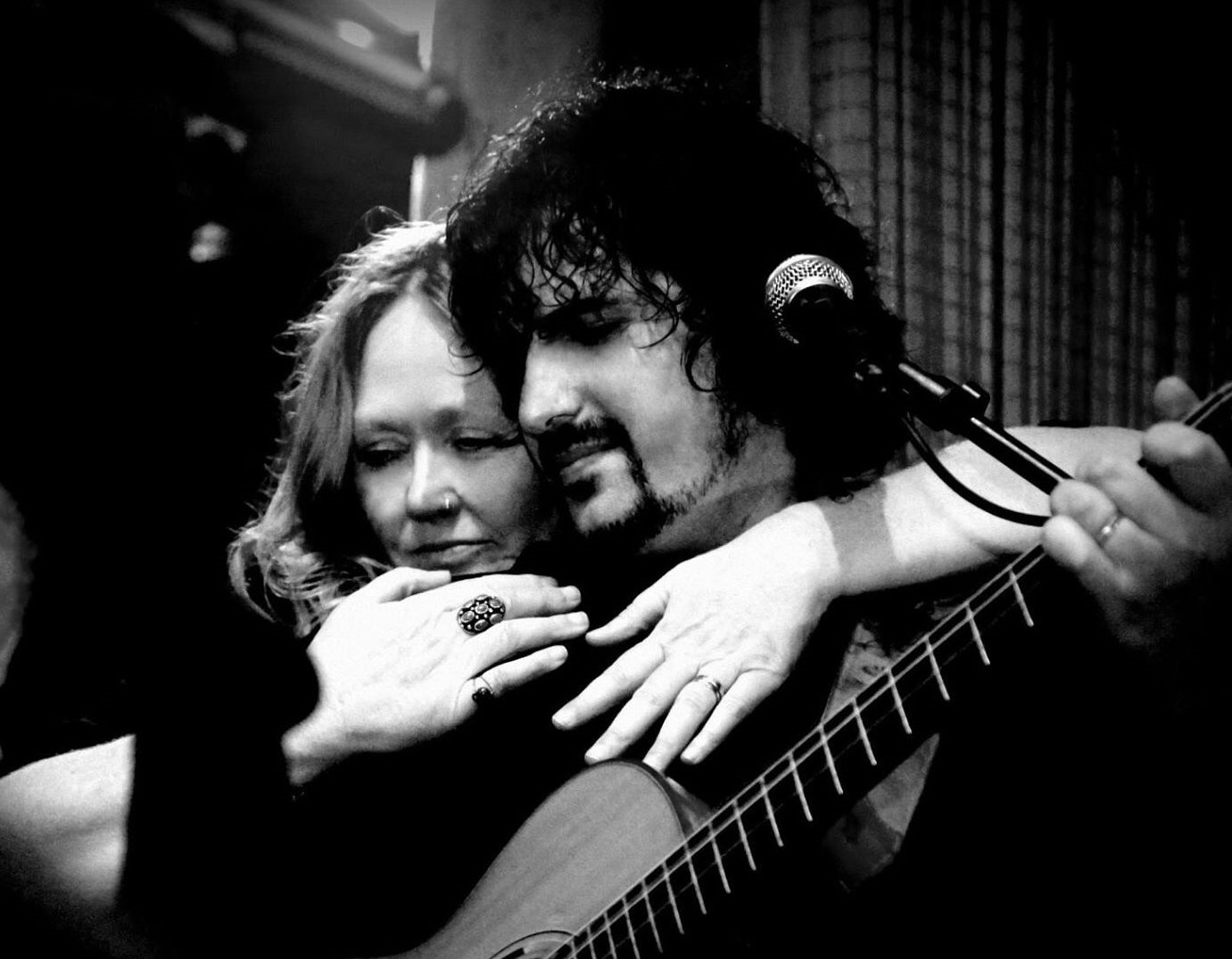Life as inspiration – Interview with John Knight
Growing up in the 1960s in Chicago, John Knight was constantly surrounded by music. This passion has not only managed to keep him out of trouble but gave his life a direction he’s still pursuing to this very day. Passionate about anything from blues to progressive rock you might catch Knight contributing guitars even to his son’s hip-hop solo project. A productive and always willing to experiment with his own means and approaches he’s a musician we’re glad to have met here on Drooble. Here’s more about him and his work.
Hello! Tell the world about yourself. How did you grow up to become the musician you are today?
I grew up on the south side of Chicago in the ’60s. It was a very middle-class area that was really interesting because there were lots of very talented people within approximately a 1 to 1.5 mile radius. In my immediate family, I am the only one that took an interest in playing music although everyone liked different types. My dad was a blues/R&B fan, mom loved country and bluegrass and I was a huge fan of classical music and the popular British bands at the time. There were musical people everywhere, musicians, singers, dancers. There was hardly a block that didn’t have someone musical living on it somewhere. In hindsight, I guess you could say it was our parents’ way of keeping us out of mischief. They catered to our interests, supported us and in return we stayed out of trouble.
My other major influence was an uncle that played the bass with a few of the old well-known Chicago bluesmen. I used to go to some of their rehearsals and that really did wonders for my level of interest in music and musical instruments.
My parents were always very supportive of my interest in music. For them I’m sure it was a better alternative to my getting into things that I shouldn’t have. They bought my first keyboard, electric guitar and amplifier. The keyboard and amp were Vox and the guitar was a coffee brown Gibson SG (circa 1964). I was highly motivated by the instrument(s).
Introduce your current musical projects and tell us what makes each one special for you!
My current efforts include two compositions tentatively named “Slave” and another called “This Was Indian Land Once”.
Slave, the title pretty much says it all. It’s the usual story about slavers voyages to lands where they could capture people to later be subservient. The twist is that this time… they took the wrong one, and this one will prove to be their undoing. Musically, the piece goes through a bit of genesis before getting to the vocal parts. The reason for this is that I could think of no words to use that might describe the mentality of the enslaver. What might have driven one man to enslave another other than monetary gain? So, bereft of word, it remains instrumental.
However, after the gong, and the flipping of coin they story continues
This Was Indian Land Once is also somewhat of a political theme and puts forth the proposition that Christopher Columbus and all aboard the first three ships to the new world (for them anyway) were Terrorist’s, murderers and thieves. The term “conqueror” is bantered about in efforts to hide or at least cover their atrocities, as usually is the case.
Both of these tracks are designed to enlighten and bring into the cold light of day, the real truth behind the history that we are, or at least were taught as children. I believe the cover stories need to be uncovered.
You have been playing music for a long while! How do you find the drive and inspiration to keep going all this time?
The drive for me to keep doing this for so long comes from an intense desire to get the ideas out of my head where everyone can hear them exactly as I do. I carry a sound recorder with me most of the time. It’s always something different and always inspired by my surroundings, people, places, things, events. There is always a wealthy of inspiration to draw from. The down side is that I am not always near an instrument when the ideas really start to flow.
Life is inspiring and if you can’t find that inspiration then maybe there’s another way to view the world that hasn’t availed itself yet. I just look around and it’s everywhere.
How is your local music scene in your perspective? Do you feel like you belong there?
The local music scene in my area is for the most part blues, country and surprisingly, lots of hip-hop. Neither of which is my preference. So locally, I am not very involved because I really don’t feel like there would be a large market here for my style. My son is a hip-hop artist, so I support him in his efforts although it’s not quite my style. He’s very good at what he does and will always have my support. We collaborate from time to time. However, because of the drastic difference in our styles I usually contribute to his recordings with guitar or vocal support rather than actually get deeper involved in his writing process.
What is your all-time favorite record and how did it change you as an artist?
I actually have two all-time favorite records that I still enjoy listening to. The first is Jethro Tull’s “A Passion Play”, and the second is Emerson Lake and Palmer’s “Tarkus”. Both of these albums were drastic diversions from anything I had ever heard before (at that time of course). They broke all the rules of length and were prime examples the music industry as a whole really did not understand what portions of the public really wanted.
There were no catchy hooks or repetitive phrases that were designed to stick in one’s head; they weren’t writing about personal relationships, emotions and the typical blues, soul, rock, country R&B or bluegrass kind of stuff. Musically, they also broke a lot of barriers; maybe that’s what the term “progressive” is all about…. (i.e. not as repetitive).
Both of these albums changed the way I thought about music and composition in a big way. I started seeking other bands that were doing the same or similar types of music… then came Yes, Genesis, Aphrodite’s Child (a band Vangelis was a member of), and many others ever broadening my musical perspective.
Don’t get me wrong, I still write some reasonably uncomplicated songs that have a catchy hook and it’s not beneath me to throw in a line or two designed to stick in your memory, however, it is not where I stop. I still like bands like Black Sabbath, Uriah Heep and a lot of the new music that I see and hear every day but they don’t have the impact on me that Tull and E.L.P. had.
What are your favorite software and hardware tools for music production?
My DAW of choice is Sonar. I currently use versions 8.5 through Platinum depending on who I’m working with and the needs of the project. I started using Cakewalk back when it was a D.O.S. program before it migrated to the Windows environment.
I abandoned the use of most of my hardware synthesizers and opted for soft synths (VST’s) mainly because of the weight of the hardware, the noise levels (hissing and buzzes) that I always found annoying and the fact that analog synths could easily get out of tune due to the environment. I find that the software plugins sound at least as good as the originals and there’s no analog based hardware glitches to contend with.
A great example of a synth that I love is the Korg M1. I used to own the hardware keyboard and I had several additional cards with factory patches stored on them. It was a rather expensive setup. Several years ago Korg released VST versions of their M1, MonoPoly, Wavestation and several others with all of the factory related patches ever available. Since many of the keyboard synths were software-based anyway, there is no difference in sound between the hardware and software… except that the VST doesn’t make any noise and is never out of tune unless you make it so.
I use a Komplete Kontrol S61 MKII controller keyboard and I have a Roland VG99 with a Godin 13-pin guitar. The 13-pin had a Graphtech Ghost piezo setup that when connected to the VG99 converts the incoming piezo signal to MIDI, which allows me to play any synths from my guitar.
What is your songwriting process like?
My songwriting process varies from track to track but there are always things that I have to do before I can record the first note. Since I work alone, all of my work is done in layers. The first of which is usually a basic percussion track. I have to preplan a lot and using my DAW I’ll lay out the tempo, key and meter changes first. Then some basic “boom chak” kind of drum pattern so that I don’t have to play against a metronome. Once this is accomplished, I’ll start filling in the instruments, the voices, whatever will logically get me to the next step, so I can start hearing progress.
I seldom sit in my studio with the intent of writing a song, it’s more like the songs come to me and then I’ll go to my studio and start translating from my head to the DAW. I never aim for a particular genre or style. Whatever comes out is what it is, and I never know what’s going to be next. Today it might be a rocker, tomorrow maybe a classical piece, blues or maybe ever something completely different…. Lol!
Out of all the live shows you played, which one was the most memorable, and why?
The most memorable to me was the one time in the mid 70’s, we played a live audition that was only supposed to be 15 minutes and we ended up playing for almost two hours because the audience kept asking for more. The owner of the venue approached us and asked if we would mind playing more… We were going to get paid at that point so naturally, we didn’t mind at all. We were playing all original material and the audience love it. Much to my amazement, we were cheered and many of the audience actually stood up. That made my year!
What is your biggest musical goal?
My biggest musical goal is to get my first CD completed and see where it goes. I like to think my music is good and maybe even a bit unexpected. However, there is that little bit of satisfaction that I would gain by knowing that the public thinks it’s worthwhile enough to purchase. When someone puts out their hard earned money for something you produced from nothing, it’s the ultimate compliment and homage to the effort!
How has being on Drooble helped you as a musician?
Drooble has helped me realize that some of the aspects of my music that I thought were weak, may actually be strong points; my voice is one of them. I never thought much of my vocal attempts. I mean, I tried to keep it in key but the timbre of my voice was something I never saw as fitting the music. Because of the comments from people here on Drooble I have been brought to a conclusion that maybe it doesn’t suck as much as I originally thought.
I never considered myself a singer or vocalist of any kind. I am very confident in my ability to write, arrange and engineer my own music, but when it comes to vocals, my confidence is fugitive. I ended up singing or vocalizing on my tracks simply because there was no one else around me to sing them in a way that I thought might fit the music.
That’s when I decided to give it a shot and good or bad it was the best shot I had. I decided to approach the lyrics like I’m telling a story to my kids and I really want them to be interested and get into it, so things may sound a little dramatic at times. The artists on Drooble have consistently commented positively on my vocals and that makes me smile from ear to ear. It also says to me that the vocals are at least perceived to fit the music.
So in short, the Drooble community has given me a positive perspective of my composition that I didn’t have before. For that I am grateful.







